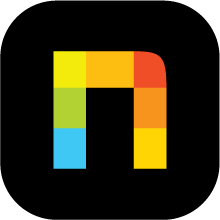Among students, studying using Quizlet is a pretty common practice. In fact, it may be increasingly difficult to find students who still take out a writing utensil and notecard to create their own flashcards.
But with the rise of generative AI creating new ways for students to learn and teachers to teach, the platform with more than 60 million monthly users is introducing new content faster than ever before.
Quizlet’s recent State of AI in Education Report showed that over two-thirds of students believe AI helps better understand material as well as study faster or more efficiently.
This back-to-school season alone, Quizlet released more than a dozen new products and features—above and beyond Quizlet’s historical pace, according to Nitin Gupta, vice president of product at Quizlet.
New AI-powered study tools like Magic Notes, Quick Summary, and Brain Beats are joining alongside Q-Chat, the platform’s personalized AI tutor—which, Gupta says, was the first of its kind.
However, AI itself is not new to Quizlet. For the millions of students who have used the platform, the “Learn” tool is just one example of how machine learning has been helping to create personalized learning based on performance. Gupta notes Quizlet began partnering with OpenAI prior to the pandemic with GPT-2.5 and 3.
Studying with AI
While Gupta says Q-Chat was the first personalized AI-tutor—having launched in beta in March—other studying platforms like Chegg and Khan Academy are using GPT-4 to try to refine learning online.
What makes Q-Chat unique, Gupta argues, is its cohesion with Quizlet itself and thus its pairing with the coursework a student actually needs and is working on.
“If you think back to Quizlet, it’s your course,” he says. “It’s the stuff you’re learning for your test, and the fact that users can create that themselves is hugely important.”
The generative AI tool is built around the Socratic method to prompt critical thinking by asking users’ questions instead of just supplying a response similar to ChatGPT.
Over a million students have used Q-Chat so far. Gupta says feedback has been overwhelmingly positive among students and, to his surprise, teachers.
On top of Q-Chat, Quizlet’s new Magic Notes function allow educators to plan curriculum and build lesson plans. Magic Notes works by allowing users to upload their hand-written or digital notes—even straight from Google Docs—and turn them instantly into study tools, outlines, and more.
“For us, it’s just been awesome to see the traction and usage there, of frankly, students just saying like, holy cow, I’ve been wanting this for years like, this makes my life so much easier,” Gupta says.
Other new AI-powered functions include Quick Summary, which will help condense and summarize dense material, and Brain Beats, which will turn users’ flashcards into a song.
Learning at the forefront
For Gupta, he says Quizlet’s priority when using AI is to increase user learning—not cheating or just copying something from the internet.
One example of how this is being embodied is in the development of the platform’s essay starter function that will do just as the name implies. By coaching students on sharpening their thesis or considering other ways of thinking, the AI will walk students through the best ways to address a prompt.
“It’s not writing the outline for you, it’s definitely not writing the paper for you,” Gupta says. “But it’s giving you that coach, it’s having that tutor that’s sitting over your shoulder to be like: Have you thought about what other alternate viewpoints might there be? What data might you want to support that?”
He also notes that Quizlet is cognizant of, and is a believer in, the productive struggle of learning.
“That’s what Quizlet is, it’s a great place to practice, it’s a great place to get that revs. And that’s how we think about when we think about applying AI. It’s absolutely with that at the forefront,” he adds.
And while Gupta admits AI is a challenge to the traditional ways of learning, it is here to stay—and for the better.
It is a gamechanger in helping students use time effectively as well as balance school, work, and life, he notes. Plus, it makes learning tailored to students’ needs much more accessible.
“That level of personalized understanding level of really helping individuals grok it I think will just fundamentally help students and is already working to help students just be like: I don’t have to sit and reread my notes for the 33rd time to prep for this test, or just reread my textbooks,” he says.








